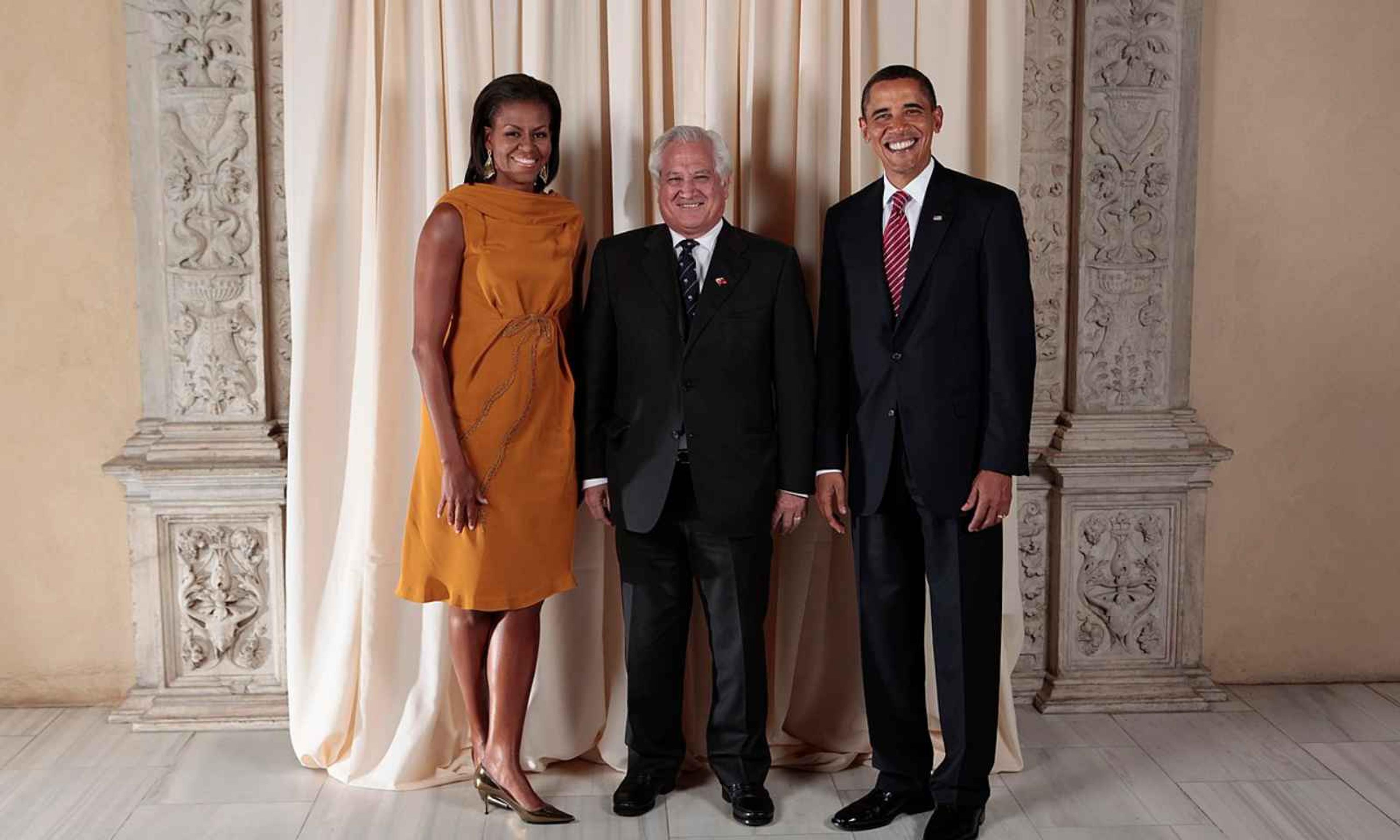

Former PM of Tonga with former US President Barack Obama and former US first lady Michelle Obama
Photo/ Wikipedia
Tongan ex-PM praises Kingdom’s land tenure system as superior to neighbours
Lord Feleti Sevele on gender roles when it comes to land ownership in Tonga and recalling the Kingdom’s decision not to ratify CEDAW



Heading off on a roadie? Here’s how to keep your car and whānau safe




Heading off on a roadie? Here’s how to keep your car and whānau safe

“Far ahead” is how Tonga’s former Prime Minister compares the Kingdom’s land tenure systems to neighbouring island nations.
Lord Feleti Sevele served as Prime Minister of the island nation from 2006 until 2010 with a background in economics and business.
He was made a noble by King George Tupou V and was bestowed with the title of Lord Sevele of Vailahi following the completion of his term as Prime Minister.
His comments follow 531pi’s Pacific Morning’s interview with Tonga’s only female Cabinet Minister, Fekitamoeloa ‘Utoikamanu who expressed her views on women’s land rights in the Kingdom.
Lord Sevele says “to own land, the forms are one is through leasehold to which women have every right to and the other is what belongs to men and that is what we called registered title.
“So I’m not as free as say my wife if she owns leasehold and she does. I’m not free as her to give it away or to sell it. Men are entitled to that land up to the time they die. They cannot will that, it has to go to the heir, say his eldest son.
“So in many ways, the land ownership through leasehold that women can hold is much better, more advantageous than we men.”
Lord Sevele was Prime Minister at the time when CEDAW (Convention on the Elimination of All Forms of Discrimination against Women) was reviewed by the Tongan government.
“We looked at it in Cabinet and we all agreed, no, this is not one that we should ratify. I then took it to the House to Parliament.
“I think subsequently the churches also said that they wouldn’t support it.”
Tonga is one of six countries that have not yet ratified CEDAW.
With the Kingdom known as the only island nation to have never been colonised, Lord Sevele says Tonga’s land tenure system is more clear than neighbouring islands.
“It’s [Tonga’s land tenure system] more on an individual basis. You’ve got Fiji. 87% of the land in Fiji is still communally owned.
“Samoa, it’s a Matai system and they go through several stages and it’s got to be approved initially by the group. We’re far ahead and I think one of those things is that we derived our system originally from British influences.”
Lord Sevele says matriarchal traditions such as the fahu system are unique to the Kingdom.
“Women here in Tonga have got more rights than a lot of women in the rest of the world. We put them on a pedestal.”
“Here, they have become Ministers, they run for Parliament, a lot of CEOs here are women and they earn that through merit.”
Watch Lord Sevele's full interview on Pacific Mornings below: